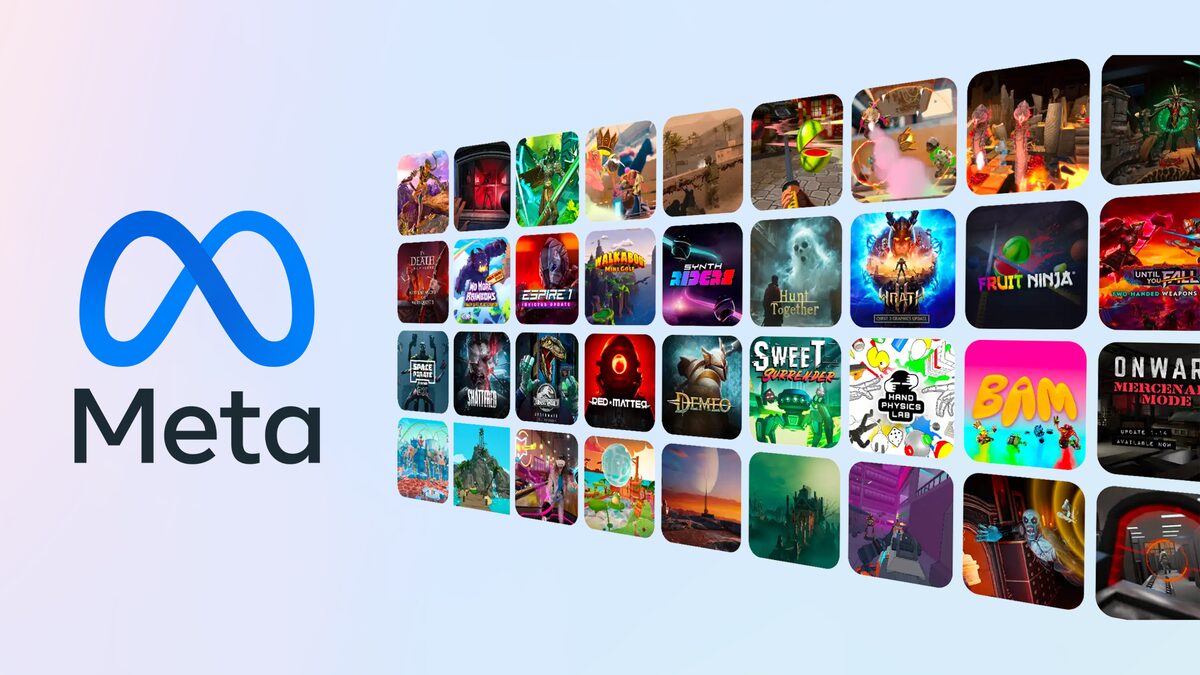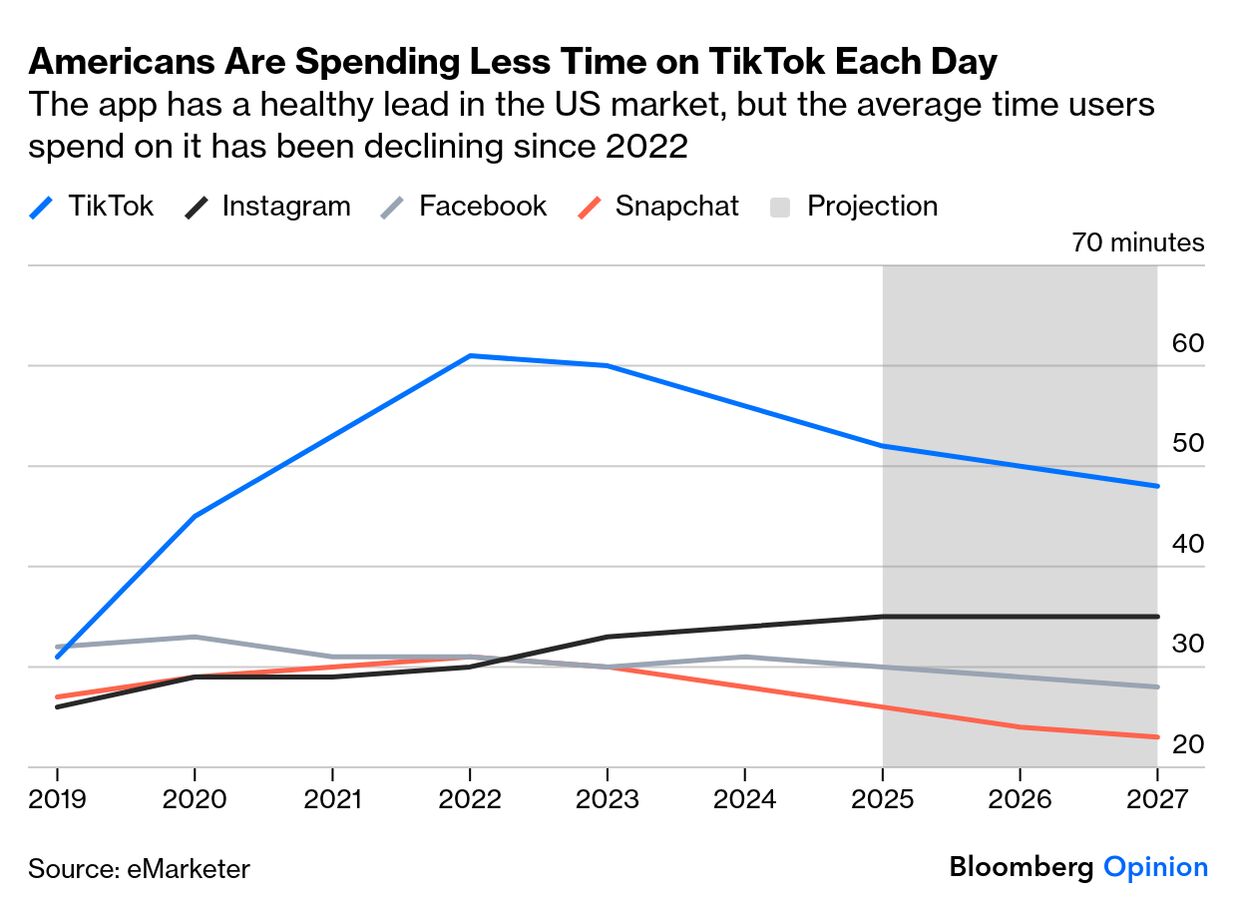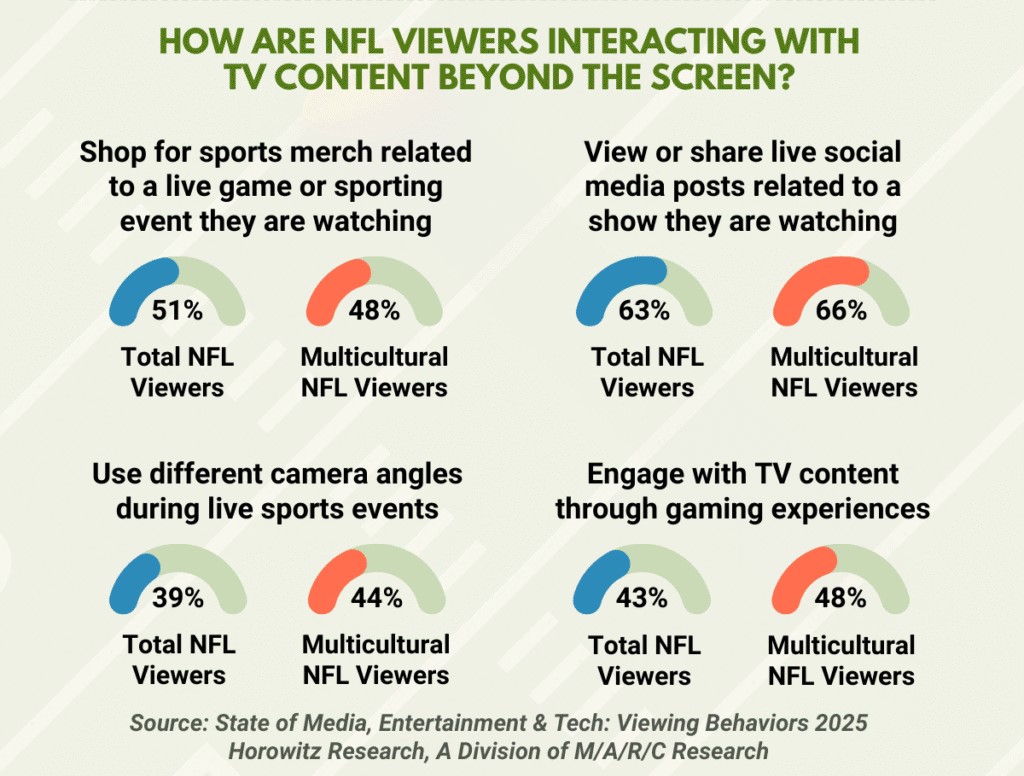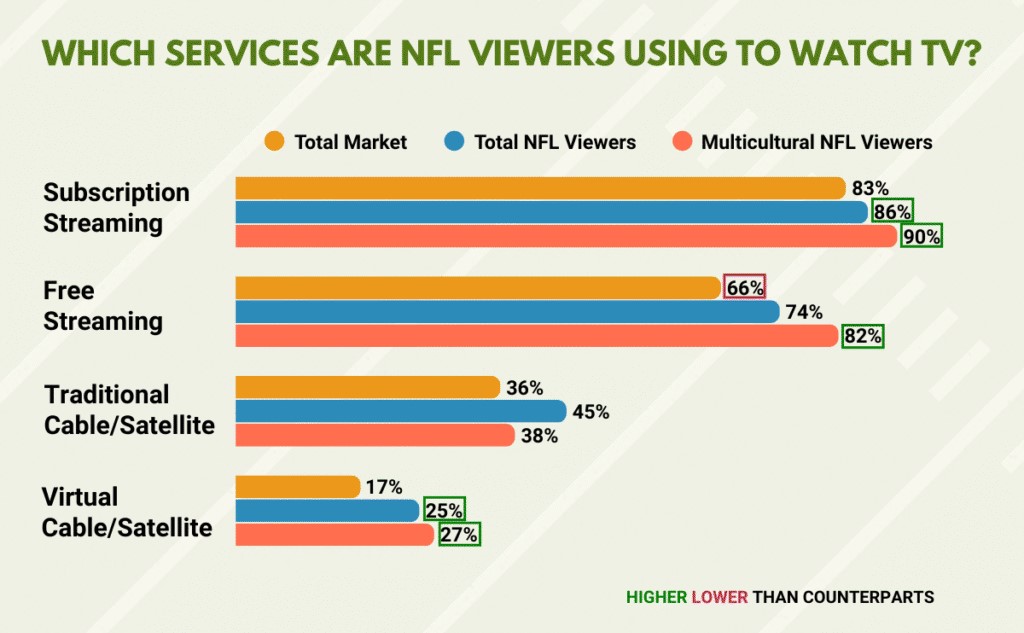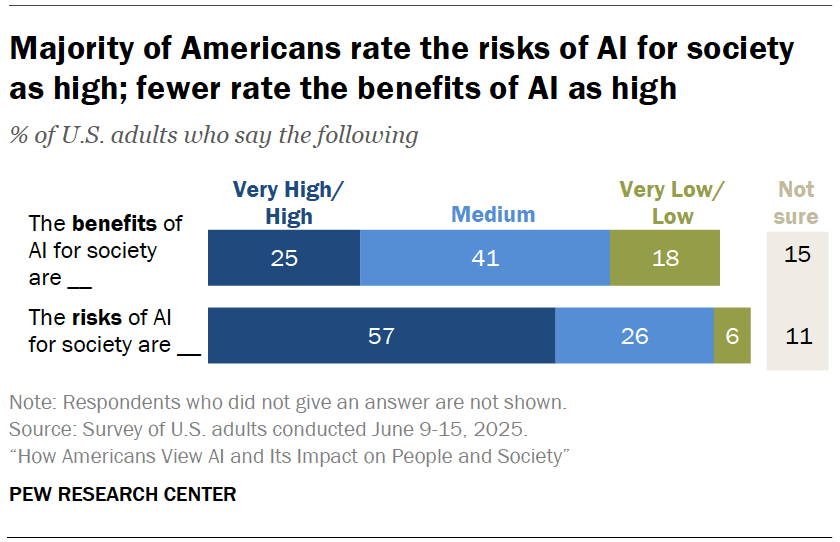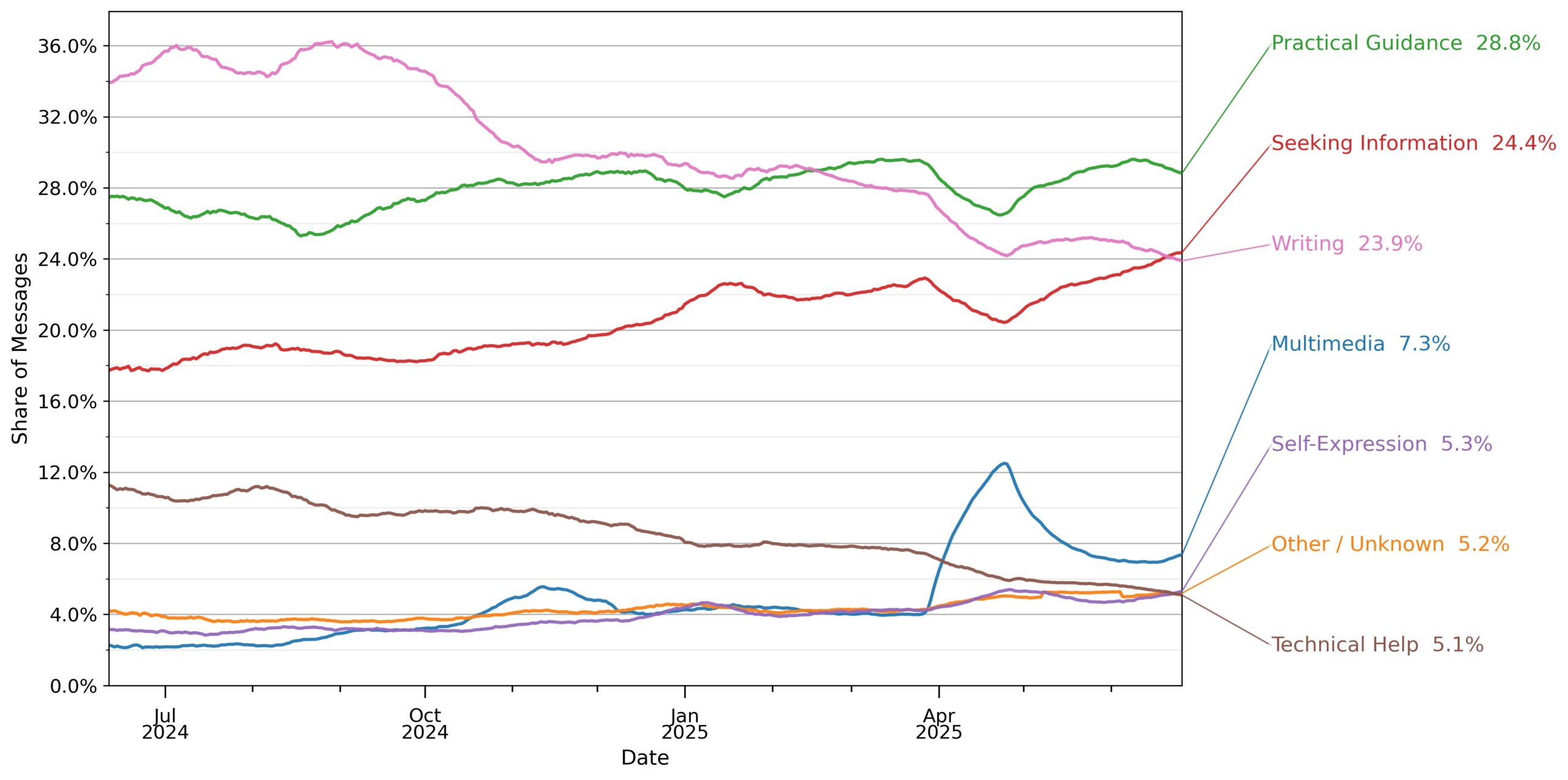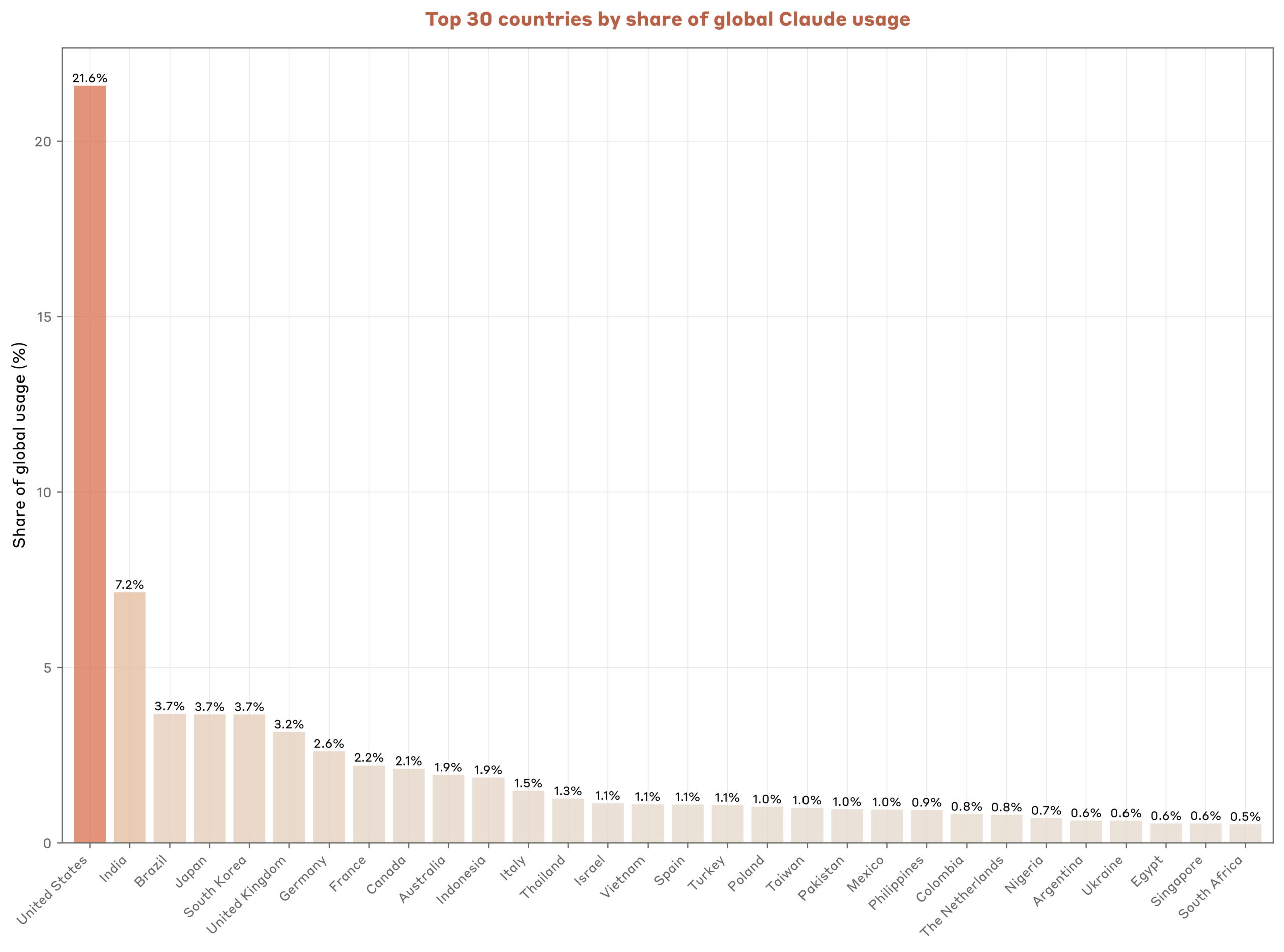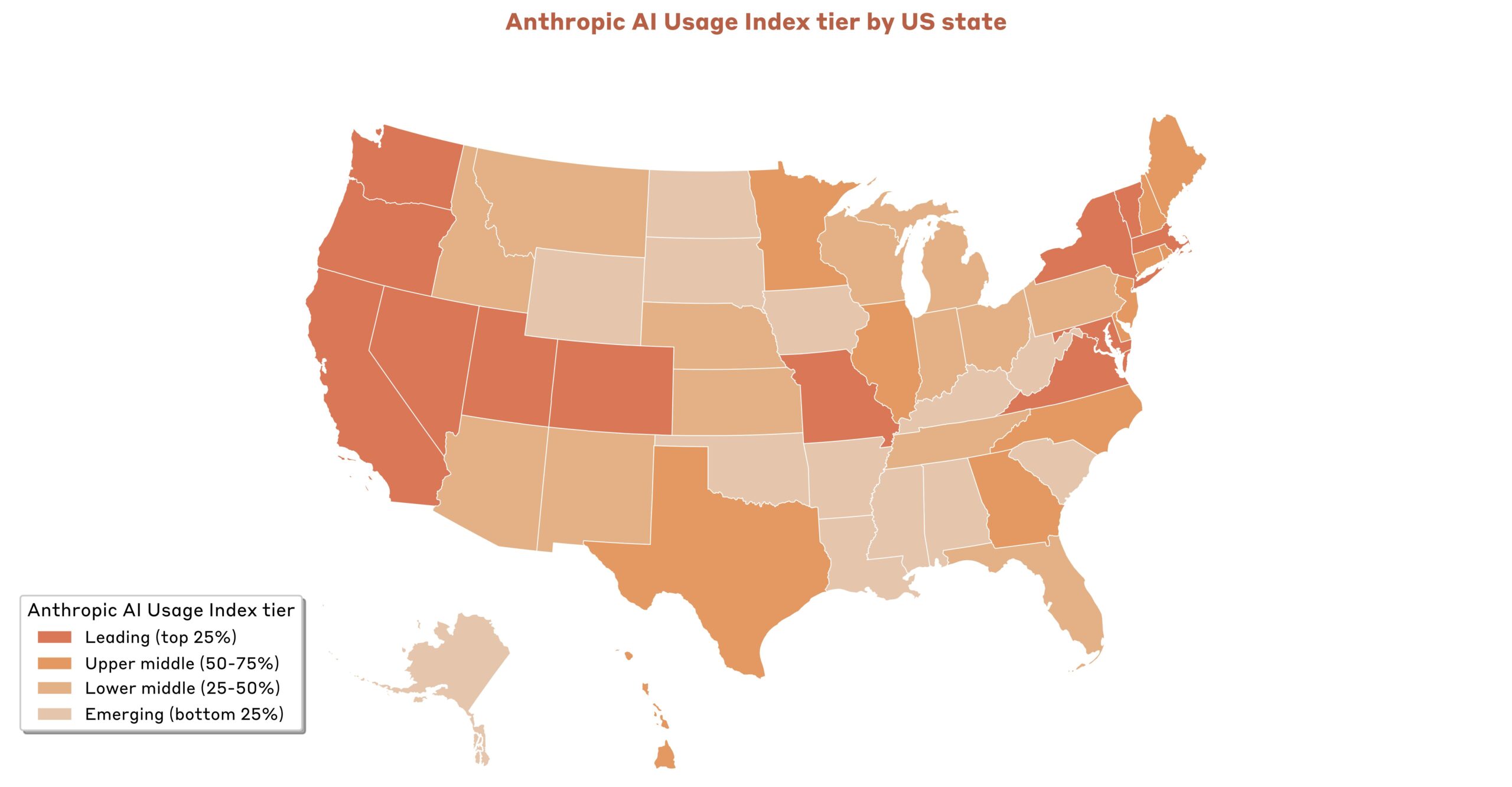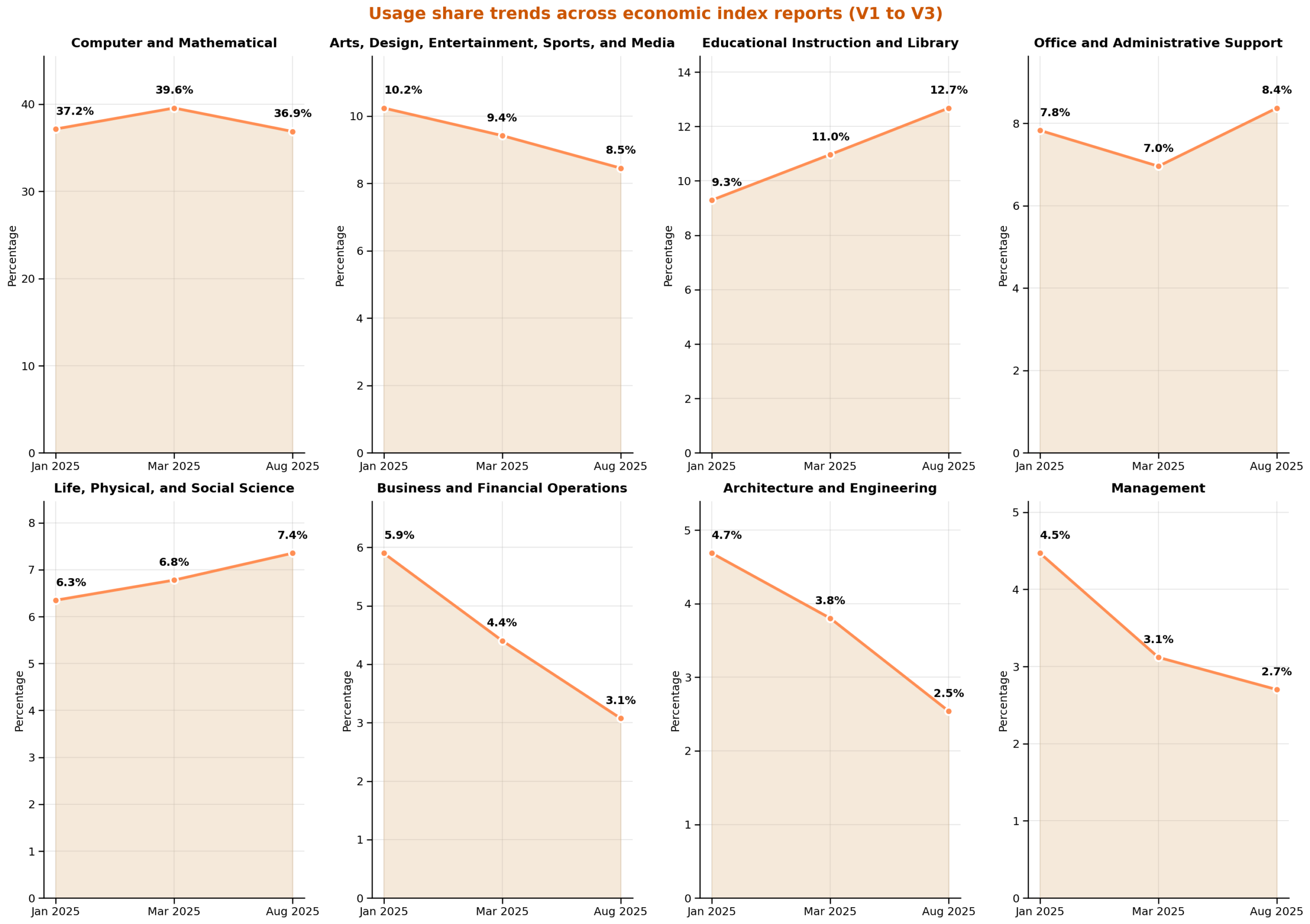
The Fed rate cut cycle finally started! The 25bp reduction this week was expected and 2 more cuts by the end of the year are now priced in. As the old saying goes, “don’t fight the Fed” and that is what indeed happened this week, with the S&P 500 rallying +1.2% and Nasdaq up +2.2%, both hitting fresh highs.
Activity in the sector is also heating up in this busy September period. This week we focused on the below key themes and developments:
- Meta’s Metaverse… Still Early, But Getting Real
- The Clock Is STILL Ticking For TikTok in the US
- YouTube’s Top Position Is Now Made Stronger W/ New AI Capabilities …Key Updates From "Made on YouTube"
- NFL Viewers Are As Passionate As Ever, But Also Like Multi-Dimensional Game Day Experiences
- AI’s Reach Continues To Broaden Beyond Technical Use Cases…But Not Without Caution
- A First Look At Comcast’s Soon To Be Spun Versant
- The Steady Stream Of Next Gen Transport Updates Continues
- Grab Bag: Fox One +ESPN Unlimited Signups / Most Watched Emmys Since 2021 / Trump Proposed End To Qtrly Earnings Reports
Meta’s Metaverse… Still Early, But Getting Real
While we are still in the early stages of understanding if and when AR and VR will reach mainstream adoption, we thought that Meta made notable progress at this year’s Connect event across product technology, infrastructure, and content creation. That said, the event wasn’t without a few live demo hiccups!
Meta has been very focused on building “great looking glasses that deliver personal superintelligence and a feeling of presence using realistic holograms, and these ideas combined are what we call the metaverse.” The Co has been working on smart glasses for 10 years and it is its 3rd year of partnership with EssilorLuxottica. Meta’s goals in this area center on three key underlying principles: 1) designing comfortable, well-crafted glasses; 2) minimizing technological interference to preserve a sense of presence; and 3) taking superintelligence seriously, as it “will be the most important technology in our lifetime.”
So, what were the advancements at this week’s event? The new Ray-Ban Meta glasses double down on battery life and video quality, while introducing features like “Conversation Focus” to improve real-world usability. We thought that the Oakley Meta Vanguard was an impressive new design built for performance, with high-end camera specs and integrated fitness tracking (and another headwind for GoPro in our opinion). But the most important technological debut was Meta’s Ray-Ban Display and Neural Band, which essentially is a wrist-based interface that replaces traditional inputs, like keyboards, with subtle muscle movement controlling devices. This could be the start of more intuitive human to computer interaction, which is incredible, but at the same time, it all is a bit spooky! (see short video which shows how to control devices with the Ran-Ban Display and Neutral Band).
Scaling the creation of immersive and interactive content is also central to the success of Meta’s metaverse vision, hence the Co is pushing hard to enable just that. The new Meta Horizon Studio and Meta Horizon Engine are “foundational infrastructure for the metaverse and will enable that immersive and interactive worlds across all our own products, starting with VR and will one day come to glasses and social media.”
The event closed with a fireside chat featuring legendary director James Cameron, who spoke about his passion for 3D filmmaking as that is how we perceive the world. He guesstimates that 3D content has 20% more engagement than regular content. Lastly, he let the cat out of the bag regarding a new 3D sports UI that Meta has in the works (we’ll be looking out for this ahead). All in all, we look forward to hearing more updates on the early sales figures of these new glasses and software updates when Meta reports in October.
See below for more details on what we found most important.
-> Meta shares closed up +3% this week and are up +33% YTD
Meta Debuts Some Notable Advancements In Its New Compute Platform…Smart Glasses
- Its next generation Ray-Ban Meta glasses have some updated features
- Pricing/availability: Avail now starting at $379 vs earlier $299
- Same design but is now offered in new colors & new frames
- Much longer battery life: 2x the previous battery life, designed for all-day wear
- Enhanced camera: It has 3K video recording, which is 2x the previous resolution, and provides sharper, smoother, and more vivid videos
- Includes a new software feature called “Conversation Focus” which amplifies friends’ voices in noisy environments
- It will be available “soon”
- This feature will also be available as a software update for existing Ray-Ban Meta glasses
- Also improving Live AI (but still a ways to go): Can use for 1-2 hours continuously now but are working to further optimize battery & energy efficiency; The goal is for Meta AI to run continuously throughout the day, not just when invoked for specific questions
- Meta plans to roll out more Live AI features in the coming months.
- Oakley Meta Vanguard is an eye-catching new product (think, next gen GoPro+) …it follows the Oakley Meta which launched this summer, but is designed for high-performance
- Pricing/availability: $499, pre-orders open start now and will ship October 21
- Very long battery life: Can last through two marathons on a single charge
- High end camera features: The camera is centered w/ a 122-degree field of view, 3K video, & video stabilization; Also has slow-motion & hyper-lapse capture modes (available on new Ray-Ban Meta and Oakley Meta HSTN glasses too)
- More powerful speakers: It is the most powerful open-ear speakers yet as that is 6 decibels louder than previous models and has advanced wind noise reduction (Zuckerberg talked about having a clear conversation while on a jet ski!)
- Integrated fitness: Partnered with Garmin and Strava for integrated features and overlaying stats
- Addtl features: LED for pace/heart rate zone feedback, IP67 water resistance (best yet), swappable Oakley Prizm Shield lenses
- Meta Ray-Ban Display is the first AI glasses w/ a high-resolution display AND a whole new way to interact with them, which is via the Meta Neural Band…this is both cool but spooky!
- Pricing/availability: Can buy for $799 & in stores on Sept 30th
- 2 colors – black and sand and all come with transition licenses
- Feature rich display –
- Large enough for video or message threads
- Appears in one eye
- Messages disappears after a few seconds
- Has 42 pixels per degree (sharper than any major headset)
- Up to 5,000 nits brightness
- Custom light engine and waveguide
- The Meta Neural Band interface is a huge scientific break-through: The wristband allows control of glasses via subtle muscle movements which replaces traditional input methods (keyboard, mouse, touchscreen, etc.)
- The neural band specs: Its durable, lightweight, comfortable, has 18 hours battery life, & is water resistant
- Will work with agentic AI…can start a Live AI session and the AI can go off and think about it and come back
Meta Announces Foundational Infrastructure For The Metaverse That Will Enable Immersive & Interactive Across All Their Products
- Intro’d Meta Horizon Studio, which is a new creation platform to quickly & easily create immersive & interactive content in VR
- Includes AI tools to generate meshes, textures, scripts, audio, skyboxes, and more which will enable creators to build high-quality worlds much faster
- It will soon feature an agentic AI assistant that stitches together these tools, allowing world creation using simple text prompts
- A new Meta Horizon Engine built from scratch will power the studio…and replaced Unity Runtime: This engine is fully optimized for the metaverse
- Key features: Much faster performance, better graphics, and easier creation of infinite, connected spaces w/ realistic physics & interaction
- Supports 5x as many people in the same world vs to the previous engine
-> Unity shares traded down as much as -5.5% in reaction to the comments but is still up +105% YTD
- Rolling out early access to Hyperscape Capture, which enables users wearing the Quest headset to scan a room in minutes and then turn it into an immersive, true-to-life world
- Eventually you will be able to seamlessly blend Hyperscape and worlds into Horizon and have them all be connected
The Shift To 3D Storytelling Will “Drive A New Wave Of VR & Glasses Adoption”
- Quest has the “best slate” of games
- New VR games launching this fall: Marvel’s Deadpool VR, ILM’s Star Wars: Beyond Victory, and Demeo by Dungeons & Dragons: Battlemarked
- A lot of people are using Quest to watch video content as it is more immersive…”this is the first step in enabling our vision forphotorealistic social teleportation”
- Launched a new entertainment Hub called Horizon TV: Have great partners for movies, TV, live sports, & music
- Will have content from Disney+ (with Hulu and ESPN content), Universal Studios, Universal Pictures, & Blumhouse
- Supports Dolby Atmos & soon Dolby Vision too for immersive audio & video experiences, including 3D special effects for horror movies
- It will provide a much more immersive experience than traditional TV
The Clock Is STILL Ticking For TikTok in the US
It’s been 512 days since Congress passed a law requiring ByteDance to divest TikTok’s American operations or face a ban, and this week the Trump administration once again pushed back the deadline to Dec 16th, giving the Co more time to work out a deal, which seems to finally be coming together.
What is that path forward? Oracle, Silver Lake, and Andreessen Horowitz will reportedly control roughly 80% of a new US entity, complete with a US-dominated board and one member appointed by the US govt. Existing US users would move to a new version of the app, with Oracle handling US user data and TikTok engineers rebuilding the recommendation algorithms domestically using technology licensed from ByteDance. But does licensing the algorithm truly resolve the national-security concerns that were at the heart of the controversy in the first place?
Even with the framework reportedly taking shape, it is not yet a done deal. President Trump and China’s Xi Jinping’s talks regarding the transaction and overall trade negotiations began Friday morning, though tones on the outcome of the call differed. Trump implied in a post on Truth Social that the TikTok deal has essentially been approved, while China’s official statement was more measured, emphasizing compliance with Chinese law and continued negotiations.
The clock keeps ticking…(link/link/link/link)
TikTok Deal Deadline Extended (Again)
- On Mon., Sept. 15th, Wang Jingtao, deputy head of China’s cyber security regulator, said US and Chinese officials agreed to a framework that includes “licensing the algorithm and other intellectual property rights”
- In a new executive order on Tues., Sept. 16th, Trump extended the TikTok deal deadline until Dec. 16th (link)
- This is the fourth time Trump has extended the deadline
- “We’ve got a deal on TikTok. I’ve reached a deal with China. I’m going to speak to President Xi [Jinping] on Friday to confirm everything… These are very big companies that want to buy it,” Trump said outside the White House Tuesday morning
The Deal Structure Has Reportedly Been Finalized
- TikTok’s US business will reportedly be controlled by an investor consortium including Oracle, Silver Lake and Andreessen Horowitz
- Oracle, which is a long-time TikTok partner, is expected to continue to maintain its cloud computing agreement with TikTok and handle user data at its facilities in Texas
- The arrangement is expected to create a new US entity to operate the app, with US investors holding an ~80% stake and Chinese shareholders owning the rest
- The stake of ByteDance’s Chinese shareholders would dip just under 20% to comply with a US law passed last yr requiring the firm to do a deal or stop operating in America
- This new Co would also have an American-dominated board with one member designated by the US govt
- ByteDance will reportedly retain ownership of the algorithm, which will then be licensed to its new owners, according to a Chinese official quoted by the Financial Times
- How does this impact the user experience?
- New app: Existing users in the US would be asked to shift to a new app
- New algorithm: TikTok engineers will re-create a set of content-recommendation algorithms for the app, using technology licensed from TikTok’s parent ByteDance
- Both sides are still working out the final details of the proposed deal and terms could change
Though US And China Had Differing Tones Post A Call On Friday
- Trump posted on Truth Social about a “TikTok approval” (link): “I just completed a very productive call with President Xi of China. We made progress on many very important issues including Trade, Fentanyl, the need to bring the War between Russia and Ukraine to an end, and the approval of the TikTok Deal…The call was a very good one, we will be speaking again by phone, appreciate the TikTok approval, and both look forward to meeting at APEC!
- But China’s statement (via its Ministry of Foreign Affairs) was much vaguer (link): “China’s position on the TikTok issue is clear, the Chinese government respects the wishes of enterprises, and is happy to see enterprises do a good job in business negotiations on the basis of market rules and reach a solution that complies with Chinese laws and regulations and balances interests…The United States hopes to promote economic and trade cooperation between the two countries and will support the teams of both sides to negotiate and properly resolve the TikTok issue”
YouTube’s Top Position Is Now Made Stronger W/ New AI Capabilities …Key Updates From "Made on YouTube"
YouTube is the most-watched platform on connected TV and has paid out more than $100bn to creators, artists, and media companies globally over the past four years. These two stats were front and center at YouTube’s fourth Made on YouTube event, in which the Co announced 30+ product updates across its platform, including AI-powered tools to support creativity, new features for Shorts and live video, and expanded ways for creators to build community and monetize. Key updates include a new Veo 3 offering made just for Shorts, auto-dubbing with lip sync in YouTube Studio, AI-generated highlights from livestreams and podcasts, and a whole lot more. Ultimately (and as expected), AI is getting woven into every corner of the YouTube platform, from insights, to editing, to distribution across Shorts, Studio, Music, and Live.
Bigger picture, the updates from this event are more proof points that Google continues to move at lightning speed as it relates to the AI arms race and future competitive positioning in the media space.
See below for what we thought was most incremental from Made on YouTube…
Partnered With Google DeepMind To Bring A Custom Version Of Veo 3 To YouTube
- Veo 3 Fast is designed to work seamlessly in YouTube Shorts to generate outputs with lower latency at 480p so you can easily create video clips (and for the first time, with sound) from any idea
- The tool is free and currently available in the US, UK, Canada, Australia, and New Zealand, with more regions coming soon
- Veo 3 Fast also brings new capabilities to YouTube Shorts
- Add motion:Bring photos to life by applying a motion from another video
- Stylize videos:Transform videos with new styles, like pop art or origami
- Add objects:Set the scene by adding an object like a character, prop, or effect with a simple text description
Shorts Are Getting More Creative (link)
- Edit with AI: Tool that turns raw footage into a first draft by selecting key moments, adding music, transitions, and voiceover (English or Hindi)
- The feature is being tested on Shorts and the YouTube Create app, with a broader rollout coming soon
- For podcasters – will be able to input full podcast episodes to produce Shorts promotional clips (link): Platforms gen AI will pull the episodes’ “buzziest” moments and enhance w/ music and editing; Podcasters w/ audio-exclusive episodes will also be able to use YouTube’s tools to transform audio into animated videos to accompany their episode
- Speech to Song: Remix dialogue from eligible videos into catchy soundtracks for Shorts
- Powered by Google DeepMind’s Lyria 2
- Auto generated Shorts: YouTube can now automatically generate Shorts and clips from long episodes
A Whole Host Of New & Improved Features For Creators In YouTube Studio (link/link)
- Ask Studio: AI-powered partner to help creators get insights into analytics, community feedback, and inspiration
- Answers questions like how a video is performing or what viewers think of editing style, with the goal of becoming a personalized creative partner that provides actionable insights
- Auto Dubbing with Lip Sync: YouTube will translate a video into another language and reanimate lips so it looks like the person/character is actually speaking the language
- Collaborations: Up to five creators can co-post a single video; That video shows up on every participating channel, and each creator gets their own subscribe button
- One channel uploads the video, and that channel keeps the views and AdSense revenue
- A/B thumbnail and title testing:Last year, YouTube rolled out A/B testing for thumbnails; Now, creators can test up to 3 thumbnails and 3 titles on a single video
- Dynamic brand integrations: Starting next year, creators will be able to mark slots in their videos where brand segments can be added or removed
- Inspiration Tab: Helps creators spark ideas with suggested topics they can combine, customize, and iterate on
- Each prompt delivers nine new ideas along with audience-based insights explaining why they might work
- Likeness detection: Expanding the tool to YouTube Partner Program creators, which helps detect and manage unauthorized videos using a creator’s facial likeness
YouTube Live Is Also Getting Some Big Updates (link)
- Key stat – on avg, over 30% of daily logged-in YouTube viewers watched live content in Q2:25 alone
- Getting started on live streaming will be less daunting
- Creators can test setups with no risk before going live
- For gamers – adding Playables on Live, allowing creators to stream games (like Angry Birds, Trivia Crack, Cut the Rope, etc.) from a 75+ title library while engaging with chat as usual
- New features will help boost growth and prioritize discoverability
- Simulcast streaming: Can now broadcast in horizontal or vertical formats at the same time
- React live: Allows anyone to start a vertical livestream on mobile and react to other live events, or even other creators, who are currently live
- AI-powered highlights: Finds the most compelling moments from the livestream and automatically creates ready-to-share Shorts
- New monetizing tools for livestreaming
- Side-by-side ads: which provide a less disruptive way to run ads while keeping audiences engaged
- Public to members-only livestreams: Creators w/ channel memberships can now switch from public to members-only livestreams, making it easy to create premium, members-only content, while strengthening community and attracting new paid members
Other Key Updates Across YouTube Shopping & YouTube Music
- “Supercharging” YouTube Shopping w/ AI (link): Leaning on an AI-powered system to identify the optimal moment a product is mentioned and automatically display the product tag at that time, capturing viewer interest when it’s highest
- Began testing the ability to automatically identify and tag all eligible products mentioned in your video later this yr
- New fan features on YouTube Music (link): Music now offers countdowns and pre-saves for upcoming releases, while new platform-wide tools let artists engage top fans with exclusive merch, thank-you videos, behind-the-scenes content, and other fan-only perks
NFL Viewers Are As Passionate As Ever, But Also Like Multi-Dimensional Game Day Experiences
Heading into NFL season there always seems to be a little bit of nervousness regarding what viewership trends will be since American football is the most important sport for the US media eco-system given the huge and engaged fan base. So how are things going? So far so good. Through the first two weeks of the 2025–26 NFL season, viewership ratings have reached historic highs, with marquee matchups like Eagles vs Chiefs drawing 33.76mn viewers, which is the most-watched regular-season Sunday game in Fox’s history, and the season average is up +4% y/y. While new measurement methods modestly boosted reported audiences, the NFL’s massive reach remains a key driver of its $5.2bn ad inventory.
Separately, but related this week, a new Horowitz report highlighted how NFL fans are transforming game day into a multi-dimensional experience as 63% engage with live social media, 51% shop for merchandise, and nearly half interact with gaming or alternate viewing features during games. The majority of fans (86%) now watch via streaming services, underscoring the league’s evolving digital footprint and the increasingly interactive nature of NFL viewership.
See more on both below.
NFL Viewership Hits Records (link/link/link)
- Cowboys–Eagles (Week 1, NBC): 3mn viewers (2nd-biggest opener ever as the 2024 Ravens–Chiefs Kickoff averaged 29.2mn)
- The game was pacing for 31.6mn, on avg, but due to a 65 min weather delay, views dipped
- Ravens–Bills (Sept. 7):7mn viewers
- CBS Lions–Packers (same weekend): 24mn viewers
- The game was pacing for 31.6mn, on avg, but due to a 65 min weather delay, views dipped
- Eagles–Chiefs (Week 2, Fox): 76mn viewers using the new BDP reporting (32.66mn under old method): Reminder that BDP combines Nielsen’s household panel w/ device-level data from 45mn homes / 75mn devices (set-top boxes + smart TVs), plus first-party streaming (e.g., NFL games)
- This was the most-watched regular-season Sunday game in Fox’s history, and biggest ever Week 2 NFL audience
- The previous week 2 record was 27.9mn (Chiefs-Bengals on CBS 2024)
- NFL Season Averages thus far (first 2 weeks, 2025–26): 7mn viewers per game (average), up +4% vs. 2024 and up +17% vs. same time in 2023
NFL Viewers Are Transforming Game Day into an Interactive, Social, & Shopping Experience (link/link)
- Horowitz put out a new report on how NFL viewers are changing game day habits…it is not just about watching the game, it is also about interacting with social media, shopping for sports merchandise, and engaging with gaming experiences at the same time.
- Some highlighted stats regarding NFL fan behavior during games:
- 63% of total NFL viewers engage with live social media during games (i.e., posts, reactions)
- 51% of total NFL viewers shop for merchandise while watching live games
- 43% of total NFL viewers engage through video games or interactive features tied to live sports
- 39% of total NFL viewers use alternate angles (player cams, drones, etc.)
- Which services are NFL fans overall using to watch the game?
- 86% use a subscription streaming service while 45% use traditional able/satellite
AI’s Reach Continues To Broaden Beyond Technical Use Cases…But Not Without Caution
It’s been a couple of years since OpenAI’s ChatGPT release ignited widespread excitement about AI and its seemingly limitless possibilities. Enthusiasm remains high, but caution is rising, as over half of Americans report feeling more concerned than excited about AI’s growing presence in daily life, citing potential risks to creativity, relationships, and human skills, according to Pew Research Center. Interestingly, younger adults are among the most wary of AI’s impact on thinking and social connection.
At the same time, adoption is rising and usage is becoming more personal. As per a report from OpenAI, ChatGPT has seen a shift from early male-dominated users to near gender parity, with usage increasingly focused on practical guidance, information seeking, and non-work activities. Geographic and economic factors also shape AI engagement. Per a report from Anthropic (also out this week!), its Claude offering sees the highest adoption in US tech hubs and wealthier regions, with usage shifting from traditional computational tasks (which is still the highest) toward education, knowledge-intensive work, and creative activities. Overall, the data seems to suggest that AI usage is seeping beyond more computational use cases, but its societal and personal implications are still top of mind.
See below for what we thought were the most notable points from this flood of AI-related reports this week. There was a lot to shift through!
Americans Are Much More Concerned Than Excited About The Increased Use Of AI In Daily Life, Per Pew Research Center (link)
- Americans are getting warier about AI’s broader impact
- 50% say they’re more concerned than excited about the incr’d use of AI in daily life, up from 37% in 2021
- Just 10% are more excited than concerned
- 38% say they’re equally excited and concerned
- 57% of Americans rate the societal risksof AI as high, vs 25% who say the benefits of AI are high
- The most common concern? AI weakening human skills and connection
- Younger Americans are generally more likely than older Americans to think the incr’d use of AI will worsen human abilities
- 61% of adults < 30 think the increased use of AI in society will make people worse at thinking creatively, vs 42% of those ages 65+
- 58% of adults < 30 say the increased use of AI in society will make people worse at forming meaningful relationships, vs 40% of those ages 65+
- Americans overwhelmingly reject AI’s involvement in more personal aspects of life
- 73% say AI should play no role at all in advising people about their faith in God
- 66% think AI should not have a role in judging whether two people could fall in love
- 57% of US adults say they have not too much or no control in whether AI is used in their lives
- Just 13% of Americans think they have a great deal or quite a bit of control over whether AI is used in their lives, while an additional 30% think they have some control
- 51% of American say they are extremely or very concerned that people’s ability to do things on their own will get worse because of AI use
- Another 31% are somewhat concerned about this
- Majority of Americans rate the risks of AI for society as high, while fewer rate the benefits of AI as high
- “Erosion of human skills and connections” is the most commonly cited reason for Americans seeing a high risk from AI
- “Increased efficiency” is the most common reason American see the benefits of AI as high
- More than a qtr (27%) say they would not let AI assist w/ their daily activities at all
- A large majority of Americans (73%) say they would be willing to let AI assist them at least a littlewith their day-to-day activities, but only 13% say they would be willing to let AI assist them a lot
- Asian Americans report higher usage of AI vs other demographics
- 39% of Asian American adults say they interact with AI almost constantly or several times a day
- That is moderately higher than the shares seen among White (31%), Hispanic (29%) and Black (27%) adults
A Couple Standout Stats From OpenAI’s “How People Use ChatGPT” Report (link)
- How are users using ChatGPT?
- ~80% of all ChatGPT usage falls into three categories –
- Practical guidance, including tutoring, how-to advice, creative ideation, etc., remained constant at ~29% of usage (from July 2024 to July 2025)
- Writing, including editing, critiquing, or translating user text, declined from 36% (July 2024) to 24% (July 2025)
- Seeking Information, which is used as a close substitute for web search grew from 14% (July 2024) to 24% (July 2025)
- Computer programming accounts for only ~4.2% of ChatGPT messages
- Social-emotional topics (relationships, personal reflection) are also a small share
- 9% for relationships
- 4% for games/role play
- ~80% of all ChatGPT usage falls into three categories –
- ChatGPT is getting more personal…growth in non-work-related queries has outpaced that of work-related: Non-work messages increased from 53% of all messages in June 2024 to 73% in June 2025
- Older users are more likely to use ChatGPT for work: For users < 26, only 23% of messages are work-related, and this share increases with age (except for those 66 and older, where it drops to 16%)
- That said, the proportion of work-related messages has declined for all age groups over time
- Users with higher education levels are more likely to use ChatGPT for work
- Less than a bachelor’s degree: 37% of messages are work-related
- Bachelor’s degree: 46%
- Some graduate education: 48%
- User gender dynamics have flipped: Early ChatGPT usage skewed heavily masculine (~80% of weekly active users), but by H1 2025 usage reached near parity, and by June 2025, users with typically feminine names slightly outnumbered masculine
A Look Into How Anthropic’s Claude Is Used Across Countries And US States (link)
- Claude adoption overall is highly geographically concentrated and total Claude usage is highest in the US
- That’s followed by India (7.2% of share) and Brazil (3.7%) BUT concentration is affected by the population size of each country, so larger countries may have larger usage shares purely b/c of population size
- States w/ “major tech centers” lead in Claude adoption, with California overwhelmingly at the top (25.3% usage)…
- Other states with major tech centers like New York (9.3%), Texas (6.7%), and Virginia (4.0%) also rank highly
- …BUT, when adjusting for population size, District of Columbia leads with an Anthropic AI Usage Index of 3.82, indicating that Claude usage in DC is 3.82x greater than its share of the country’s working-age population
- Closely following is Utah (3.78), notably ahead of California (2.13), New York (1.58) and Virginia (1.57)
- Claude adoption rises faster with income: Each 1% increase in state GDP per capita is associated with a 1.8% increase in the AI Usage Index
- While computer and mathematical tasks still dominate overall usage at 36%, there has been sustained growth in knowledge-intensive fields
- Educational instruction tasks have risen 40%+ (from 9% to 13% of all conversations), and the share of tasks associated w/ the physical and social sciences has increased by a third (from 6% to 8%)
- In the meantime, the relative frequency of traditional business tasks has declined
- Generally, as the GDP per capita of a country increases, the use of Claude shifts away from tasks in the Computer and Mathematical occupation group, and towards a diverse range of other activities, like education, art and design; office and administrative support; and the physical and social sciences
- In countries with higher Claude use per capita, Claude’s uses tend towards augmentation, whereas people in lower-use countries are much more likely to prefer automation
- Controlling for the mix of tasks in question, a 1% increase in population-adjusted use of Claude is correlated with a roughly 3% reduction in automation
- Similarly, increases in population-adjusted Claude use are associated with a shift away from automation, not towards
A First Look At Comcast’s Soon To Be Spun Versant
Comcast is moving forward with its previously announced plan to spin off its portfolio of linear cable networks (including USA, CNBC, MSNBC, Oxygen, E!, SYFY, and Golf Channel) into a new publicly traded entity, Versant Media Group. Comcast’s Form 10 filed with the SEC this week detailed Versant’s business profile and financials, among other things. This gave investors a first look at Versant’s standalone performance and in the most recent six-month period ending June 30th, Versant reported a -5.8% y/y revenue decline, and its adj EBITDA margin stood at 42.2%.
The Versant spin-off is slated to be completed by the end of 2025 and Comcast has positioned the Co to pursue growth through acquisitions, particularly in digital and adjacent verticals. The ticker will be “VSNT”.
Unfortunately we didn’t have capacity this week to dive into the whole filing (371 pages) but the key proforma financials are below and the full Form 10 can be found HERE if interested.
The Steady Stream Of Next Gen Transport Updates Continues
We’ve been talking about and highlighting the ever-increasing updates on autonomous vehicles and next generation transportation for some time and there were a cluster of key updates out this week that we wanted to bring forward…see below. (link/link/link/link)
- Lyft and Waymo annc’d a new partnership to bring Waymo’s fully autonomous ride-hailing service to Nashville in 2026
- This new collaboration will leverage Lyft’s integrated fleet mgmt services through its Flexdrive subsidiary
- It will provide end-to-end fleet mgmt, including vehicle maintenance, infrastructure, and depot operations for the Nashville fleet
- Riders will have the opportunity to hail Waymo’s fully autonomous vehicles first on the Waymo app, with plans to also dispatch its fleet on Lyft’s network for matched rides later in 2026
- This new collaboration will leverage Lyft’s integrated fleet mgmt services through its Flexdrive subsidiary
-
-
- As part of this partnership, Lyft will construct a purpose-built AV fleet management facility with charging and vehicle service capabilities
-
-> Lyft shares closed up +13% in reaction to the news, while Uber fell -5%
- Waymo was also approved this week for San Fransico International Airport (SFO)
- “Beginning with employee testing soon ahead of welcoming Bay Area riders”
- Uber and Flytrex announced a strategic partnership to integrate autonomous drone delivery into Uber Eats by the end of 2025
- Flytrex is one of only four FAA-authorized BVLOS (Beyond Visual Line of Sight) operators
- Drones meet FAA safety standards, sharing skies with manned aircraft
- Uber + Flytrex aim to create a fully integrated end-to-end delivery experience
- Drone delivery promises faster, cheaper, and more sustainable logistics, reducing congestion and emissions, and enabling deliveries “in minutes, not hours”
- Flytrex has already completed 200k+ deliveries in the US over the past 3 yrs
- Flytrex is one of only four FAA-authorized BVLOS (Beyond Visual Line of Sight) operators
-> Uber shares closed up +4% in reaction to the announcement
Grab Bag: Fox One +ESPN Unlimited Signups / Most Watched Emmys Since 2021 / Trump Proposed End To Qtrly Earnings Reports
- Fox One + ESPN Unlimited bundle adds 1mn subs in the first 10 days since launch, per Antenna (link/link)
- ESPN Unlimited:
- 80% of ESPN signups came via bundles (mainly Disney Bundle)
- 10% chose annual plans: Much higher than peers (Paramount+ 5.6%, Peacock 4.3%, Fox One 1.6%, HBO Max 0.6%)
- Fox One:
- 59% came via Amazon Channels/Fire TV.
- 49% came from distributors like DirecTV, Google Play, iTunes, and Roku
- The data finds that these are genuinely new subscribers, not just shifts from ESPN+ or MVPD deals
- ESPN Unlimited:
- This year’s Emmys were the most watched since 2021 (link)
- Viewership saw notable gains –
- Drew 7.4mn viewers on CBS and Paramount+, up +8% y/y from 6.9mn on ABC last yr
- Paramount+ live streams rose +76% vs 2021
- Ratings benefited from lighter competition
- Regular-season NFL vs last year’s playoff game and were up +54% from Jan 2024’s record-low delayed Emmys
- Top wins
- The Studio (13 awards, incl. Best Comedy)
- The Pitt (Best Drama)
- Adolescence (Best Limited Series)
- Viewership saw notable gains –
- Trump proposes ending quarterly earnings reports (link/link/link)
- Suggested companies move from quarterly to semiannual earnings reporting
- It would “save money and allow managers to focus on running their companies’”
- The SEC confirmed it is reviewing the idea at Trump’s request; With a GOP 3–1 majority, rule changes could pass in 6–12 months without Congress
- Trump raised a similar idea in his first term, but it didn’t advance; Warren Buffett and Jamie Dimon previously argued against quarterly guidance (not reports)
- Supporters of quarterly reports say they ensure transparency and timely investor info
- Art Hogan, chief market strategist at B. Riley Wealth Management said, “Having to wait six months for official results, I just think would cause more difficulties than it would add benefits”
- In the UK and EU, semiannual reporting is standard; Hong Kong also uses semiannual, while China requires quarterly plus semiannual and annual filings
- “How many companies in the European markets have trillion-dollar market caps and are growing revenues at 60% a year,” stated Hogan on why this comparison is invalid
- Suggested companies move from quarterly to semiannual earnings reporting
Stock Market Check
This Week's Other Curated News
Advertising/Ad Agencies/Ad Tech
- Amazon Ads annc’d an agentic AI tool in Creative Studio enabling advertisers to ideate, collaborate, and produce ads w/ animations, music, and voiceovers. It uses retail insights, audience signals, and brand assets to generate tailored creatives. (Media Post)
- Amazon Ads annc’d a pact w/ SiriusXM to expand its DSP reach, enabling access to SiriusXM Media’s 160M+ U. S. listeners incl. Pandora & SoundCloud. Advertisers can now pair Amazon’s first-party data w/ SiriusXM’s audio for adj targeting, goal-based bidding & full-funnel measurement via Amazon Marketing Cloud. (Digiday)
- Ad Impact reports ~$1. 067bn in political ad spend YTD across media types, projecting $10.8bn for the full 2026 cycle. Of current spend, $461mn targets 2025 races, $605mn for 2026. Top races: NJ governor ($118mn), WI Supreme Court ($80mn), NYC mayor ($39mn). Advertisers: DHS ($43mn), Spanberger ($25mn). (Inside Radio)
- Best Buy Ads held its first ad tech event, annc’d new media formats, creative svs, and partnerships incl. NFL, TLG, and Dude Perfect. Powered by AI, predictive data, and automation, its 77K sq. ft. studio supports ~3K campaigns/yr. Rev tracking hits 93% via customer ID. (Media Post)
- TV/CTV pharma DTC ad spend, totaling ~$14bn–$16bn/yr, faces risk due to FDA’s crackdown on “misleading” ads, incl. 100 cease-and-desist letters. Guideline warns $4bn in Q4 ads may be impacted. Pharma CPMs are 35% above avg due to premium inventory buys & 90s creatives. Fallout may shift rev to wellness ads (~$670mn/yr, 7% growth). (Media Post)
- Magnite filed suit against Google in the U. S. District Court, seeking damages after an Apr. 2025 ruling found Google had “willfully” engaged in anticompetitive acts in ad exchange/server mkts. Magnite claims Google’s conduct harmed publishers, advertisers, and independent players by favoring its own biz. (Street Account)
- Google annc’d a revised 26-page pitch deck for AI Max, its AI-powered ad tools, aiming to clarify concerns raised by marketers after the initial 11-page version. The update seeks to improve advertiser confidence in search campaign results. AI adoption is growing, but creative hurdles and legal risks—like copyright issues—remain. (Digiday)
Artificial Intelligence/Machine Learning
- The FTC has annc’d a probe into AI chatbots’ safety for kids/teens, issuing orders to 7 major tech cos incl. OpenAI, Meta & Alphabet. Focus areas include chatbot design, data use, compliance w/ COPPA, and user disclosures. The inquiry, led by Alysa Bernstein & Erik Jones, aims to assess potential harm and ensure cos prioritize safety. (Cord Cutters News)
- Amazon annc’d agentic AI upgrades to its Seller Assistant tool, enhancing inventory mgmt, shipment optimization, and compliance tracking. Available free to U.S. merchants, it offers personalized rev strategies and market entry advice. Creative Studio also gains AI to auto-generate ads. (Retail Dive)
- Google annc’d Gemini integration into Chrome for U. S. users, following a court ruling sparing the Co from antitrust breakup. Gemini will be available on Mac, Windows, iOS, and via Google Workspace. Features include multi-step task execution, webpage recall, and content summarization. (Reuters)
- U.S. President Trump and UK PM Starmer hosted biz and tech leaders incl. Nvidia CEO Jensen Huang at Chequers. Trump joked AI is “taking over the world” and hoped tech bosses knew what they’re doing. A “Tech Prosperity Deal” was signed to boost AI in healthcare, quantum computing, and nuclear projects. (Reuters)
- Google’s Gemini 2. 5 AI earned a gold medal at the 2025 ICPC World Finals, solving 10/12 coding problems—4 more than 139 human teams. Gemini impressed w/ Problem C, a flubber optimization puzzle all humans missed. Using dynamic programming and ternary search, it cracked it in 30 mins. (Ars Technica)
- Scale AI annc’d a $100mn ceiling contract w/ the Pentagon to provide end-to-end AI products on top-secret networks. Despite losing its CEO to Meta in Jun., interim CEO Jason Droege stated at the Axios AI+ DC Summit that the Co is thriving and expanding beyond data labeling into gov-focused AI svs. (Axios)
- Chinese tech stocks surged, led by Baidu’s 16% jump—its biggest in 3+ yrs—amid AI buzz and fundraising. Alibaba rose 5.3%, JD.com 5.15%, Meituan 4.9%. Hang Seng Tech Index hit ~4-yr high, up 4.2%, w/ YTD gains >40%. Heavy AI/chip investment by Baidu, Alibaba, Tencent is paying off. Recent bond sales eased funding concerns. (The Wall Street Journal)
- EU regulators fined Google €2. 95bn ($3.5bn) for breaching competition rules by favoring its own ad-tech svs. The Commission ordered Google to end “self-preferencing” and may demand a biz unit sale. Google called the decision “wrong” and will appeal. Trump criticized the fine as unfair to U.S. investments. (KARK)
- Chinese AI Co DeepSeek annc’d its R1 model cost just $294K to train, using 512 Nvidia H800 chips. This undercuts U.S. rivals’ costs and may shift global AI mkts. In Nature, DeepSeek defended its use of distillation, citing Meta’s Llama and noting V3 training data included OpenAI-generated answers incidentally. Co also confirmed use of A100 chips in early dev stages. (Reuters)
- NVIDIA annc’d a £2bn investment to boost the U. K. AI startup ecosystem, partnering w/ Accel, Balderton, Hoxton, Phoenix Court & others. Funds will expand AI infrastructure in London, Oxford, Cambridge & Manchester, aiming to create jobs, spark new industries & empower researchers. (Street Account)
- OpenAI hired xAI’s ex-CFO Mike Liberatore after his abrupt Jul. exit, per CNBC. He’ll oversee AI infra spending, reporting to CFO Sarah Friar. Liberatore had joined xAI in Apr., aiding fundraising & data center expansion. His move may fuel tensions between Altman & Musk, amid Musk’s lawsuits vs. OpenAI. (China Daily)
- Microsoft annc’d a £22bn (~$30bn) UK investment, w/$15bn for a supercomputer w/23,000+ GPUs via Nscale. The rest supports UK ops incl. 6,000 staff. Move trumps Google’s £5bn pledge. Smith praised UK gov reforms, reversing past CMA criticism. Starmer called it a “vote of confidence” in UK AI. Google also opening a data center in Waltham Cross. (The Verge)
- OpenAI annc’d a teen-focused ChatGPT w/ age-prediction tech to block users under 18 from its standard version. This move follows lawsuits and research linking chatbot use to teen mental health issues. By year-end, guardrails will be added for teens and users in crisis. FTC launched a probe into AI chatbot safety, while grieving parents urged Congress to regulate cos over harmful AI interactions. (Axios)
- Alibaba’s shares rose >5% in Hong Kong after China Unicom annc’d plans to deploy its AI chips via Alibaba Cloud. The chips, made by its semi unit Pingtouge (T-Head), will power a major data center project. This move aligns w/ China’s push for domestic AI tech amid Nvidia restrictions. U.S.-listed shares also gained >2% in premarket. (CNBC)
- Alphabet annc’d a £5bn ($6. 8bn) UK AI investment over 2 yrs, incl. a £735mn data centre in Waltham Cross & funding for DeepMind. The move, ahead of Trump’s visit, reflects a US-UK tech partnership. Google aims for 95% carbon-free energy via Shell & reuse of heat for homes. CEO Porat highlighted AI’s role in new industries, not just efficiency. (BBC)
- Anthropic annc’d a report showing 77% of cos use its Claude chatbot to automate tasks, vs. 12% using it for collaboration. The trend may disrupt labor mkts, risking job loss. Claude mainly handles coding/admin tasks. CEO Amodei predicts AI could write all code in 12 mos. and wipe out 50% of entry-level white-collar jobs in 5 yrs, raising unemployment to 10–20%. (Entrepreneur)
- OpenAI annc’d GPT-5-Codex for Codex products, enhancing agentic coding via dynamic “thinking” times (secs to 7 hrs). It outperforms GPT-5 on SWE-bench Verified & refactoring benchmarks. Engineers found fewer incorrect, more high-impact review comments. Codex now rivals Claude Code, Cursor ($500mn ARR), & GitHub Copilot amid rising AI coding tool demand. (Tech Crunch)
- Google Gemini topped the US App Store’s free apps chart, driven by its Nano Banana image editing model. From Aug. 26–Sept. 9, Gemini gained ~23mn users and Nano Banana edited over 500mn images. The model excels in character consistency and style transfer. Free users get 100 daily edits; subscribers ($19.99+/mo) get 1,000. (9to5Google)
- Google annc’d a beta “Practice” feature in Translate, enabling real-time convos for French/Spanish learners. Powered by Gemini, it offers gamified tasks, roleplay scenarios, and daily rewards. Unlike Duolingo or Jumpspeak, it’s free and less frustrating. Though limited in scope, it’s promising for speaking/listening. (MSN)
- NVIDIA & Intel annc’d a collab on to co-develop AI infrastructure & PC products across hyperscale, enterprise & consumer mkts. Intel will build NVIDIA-custom x86 CPUs & SOCs integrating RTX GPU chiplets. NVIDIA to invest $5bn in Intel stock at $23.28/share. The fusion of NVIDIA’s AI tech w/ Intel’s x86 ecosystem aims to drive next-gen computing. Press conf. at 1 p.m. ET. (Street Account)
- Reddit stock pared losses on after reports of early talks w/ Google on a new AI content-sharing deal. Reddit seeks dynamic pricing in future agreements, building on prior $60mn/yr deals w/ Google and OpenAI. These contributed ~7% of 2025 projected rev. Stock is up 600% since its Mar. 2024 IPO, driven by fast-growing digital ads and AI licensing. (Investor’s Business Daily)
- At OpenAI’s Korea launch on, K-pop producer Vince revealed he used ChatGPT to ideate “Soda Pop” for Netflix’s KPop Demon Hunters. Though AI wasn’t used to generate the final track, fans expressed concern over its role. Vince’s comments, translated w/ AI tools, sparked debate on AI’s place in music. Netflix and OpenAI haven’t issued official statements yet. (Kotaku)
- Google annc’d a £5bn AI investment in the UK ahead of Trump’s state visit, incl. a new data center in Waltham Cross. The move aims to support AI svs like Cloud & Maps, create ~8,250 UK jobs/yr, and fund DeepMind. UK Finance Minister called it a “vote of confidence.” Google also signed a renewable energy deal w/Shell to aid grid stability and energy transition. (CNBC)
- California lawmakers passed a landmark AI safety bill, requiring AI cos to disclose and certify safety testing. Backed by Anthropic, the bill targets “frontier” models, w/ stricter rules for cos w/ >$500mn rev. Gov. Newsom, who vetoed a broader version last yr, must now weigh tech backlash vs. public concern. (Politico)
- Penske Media, owner of Rolling Stone, sued Google, alleging its AI Overviews use PMC content w/o compensation, hurting traffic and rev PMC claims ~20% of Google results linking to its sites include AI summaries. Affiliate rev fell >33% since end of 2024. Suit seeks injunction and damages. Google defends AI Overviews, citing higher-quality clicks. (The Wall Street Journal)
Audio/Music/Podcast
- Spotify annc’d a multi-yr global deal w/ Sony Music, covering recorded music & publishing. The pact aims to boost songwriter royalties after Spotify’s bundling move cut U.S. rates, costing $230mn. Sony joins Universal, Warner & Kobalt in direct deals. New initiatives include enhanced audio/visual formats & fan engagement tools. (Billboard)
- Spotify annc’d that free users now get “Pick & Play,” “Search & Play,” and “Share & Play” features, enabling specific song selection, playlist creation w/ custom titles and cover art. Curated playlists and the AI-powered Daylist adapt to user habits. Premium-only features like AI Playlist, Mix, and Lossless Audio remain exclusive. (Cord Cutters News)
- Spotify has officially started rolling out Lossless audio streaming (up to 24-bit/44.1 kHz FLAC) to Premium subscribers in select markets. The upgrade will notify users as it becomes available and is designed for clarity, ease of use, and premium sound quality, complementing other recent enhancements like AI DJ, Jam, AI Playlist, Mix, and daylist. (Spotify)
Broadcast/Cable Networks
- ABC annc’d it pulled “Jimmy Kimmel Live!” off air indefinitely. FCC Chair Carr warned ABC’s license was at risk. Nexstar, seeking FCC nod for $6.2bn Tegna merger, preempted the show. Trump praised the move; critics called it censorship. (CNBC)
- Cable TV ad rev fell 5. 9% to $20.15bn in 2024, w/S&P projecting a drop to $16.3bn by 2029. Sports nets rose 1% to $4.38bn; news nets jumped 11% to $3.57bn due to election yr. ESPN led w/$3.03bn, up 11%. Fox News hit $1.4bn. Variety content dropped 9% to $3.96bn; arts/entertainment plunged 17% to $2.13bn. (Media Post)
- Traditional TV ad spending is projected to fall 15. 5% to $49.94bn in 2025, while CTV ad spending grows 13.2% to $31.91bn. This shift reflects changing viewer habits favoring streaming over linear TV. By 2028, CTV is expected to surpass traditional TV in ad rev, driven by smart TVs, targeted ads, and programmatic buying. Cos like Disney, Paramount, Comcast & Warner Bros. (Cord Cutters News)
- Sky has put 900 roles at risk amid a biz shake-up to compete w/ US streamers. ~600 roles may be cut, 300 redeployed. Cuts target tech, product & corporate teams. Since Jan. 2024, Sky has cut ~3,500 jobs. Over 90% of new subs now come via internet-based svs like Sky Glass & Stream. (The Guardian)
- CNBC is undergoing layoffs impacting ~24 roles in its intl digital editorial team, mainly in London & Singapore. The move, now in UK-mandated consultation, aligns w/ long-term goals. Parent Co NBCUniversal plans to spin off cable networks into Versant, excluding Bravo. Versant is hiring ~750 staff. (Cord Cutters News)
Cable/Pay-TV/Wireless
- T-Mobile (TMUS) annc’d a 16% quarterly dividend hike, raising it by $0. 14 to $1.02/share. The dividend is payable to holders. The Co, known as the Un-carrier, leverages its award-winning 5G network to deliver top value, svs, and experiences. Headquartered in Bellevue, Wash., it operates brands incl. (Street Account)
- AT&T Inc. plans to sell ≥$4bn in investment-grade bonds, per Bloomberg. The offering may be split into 4 parts, incl. a 29-yr note yielding ~1.3% over Treasuries. Proceeds will support general corp. purposes, incl. debt maturities & acquisitions. Details remain private. (Investing.com)
Capital Market Updates
- Private credit firms, once focused on private equity and closely held cos, are now targeting large public cos seeking funding diversification. Traditionally reliant on bank-arranged loans, these cos are increasingly open to private debt due to its fast, flexible financing. This shift reflects growing comfort w/private credit as mkts evolve. (Bloomberg)
- Mortgage rates fell sharply Tues. , w/the avg. 30-yr fixed rate dropping 12 bps to 6.13%, per Mortgage News Daily—lowest since late 2022. Investors anticipate a Fed rate cut, echoing Sept. 2024 trends. Walker & Dunlop CEO noted Fed cuts in non-recessionary periods may not affect long-term yields. Despite expected 25–50 bps cuts, long-end rates likely remain stable. (CNBC)
- Chinese internet firms like Tencent and Baidu sold a record ¥23. 4bn in dim sum bonds in 2025 to fund AI ambitions. Tencent priced its first bond in 4 yrs at 2.1% on Sept 16, ~150bps below US Treasuries. Offshore RMB bonds offer ~2% yields vs. 4–5% for USD bonds, saving cos ~200bps. Alibaba raised ¥17bn in Nov. 2024. Total capex by major tech cos to hit $32bn in 2025, up from $13bn in 2023. (The Straits Times)
- Wall Street’s SPAC activity has revived in 2023 w/ 89 IPOs—most since 2021—after a 2-yr slowdown. CNBC SPAC 50 index rose 9.5% YTD; Post Deal Index up ~38%, signaling mkts recovery. Crypto-linked deals like Trump Media’s tie-up w/ Crypto.com highlight the trend. Morgan Stanley analysts cite rising euphoria due to stablecoin and reserve SPACs. (Intellectia)
Cloud/DataCenters/IT Infrastructure
- CoreWeave stock jumped 9% Mon. after annc’d $6.3bn cloud deal w/ NVIDIA. Under the cont’d Master Svcs Agreement, CoreWeave will sell reserved cloud capacity, w/ NVIDIA buying any unsold capacity through Apr. 13, 2032. NVIDIA, a GPU supplier and Co stockholder, ensures rev for CoreWeave’s excess capacity. (Investing.com)
Crypto/Blockchain/web3/NFTs
- Bullish, a crypto platform backed by Peter Thiel, posted Q2 net income of $108mn vs. a $116mn loss last yr. Digital asset sales rose 18% to $58.6bn; trading volume jumped 35% to $179.6bn. Shares surged 12% after its IPO last month. CEO said Q2 efforts are fueling Q3 momentum. Bullish expects Q3 adj. net income of $12–17mn and trading volume of $133–142bn. (Yahoo Finance)
Cybersecurity/Security
- Switzerland-based security svs firm Verisure annc’d plans to raise €3. 1bn ($3.7bn) via a Stockholm IPO—potentially Europe’s largest in yrs. Funds will refinance debt, support ADT Mexico acquisition. Verisure, once part of Sweden’s Securitas, saw 24% adj profit growth to €819mn and 10% rev rise to €3.4bn last yr. IPO includes €235mn from Alba Investments & Securholds Spain. (Reuters)
- Cybersecurity Co Netskope annc’d IPO pricing at $19/share, valuing it at $7. 3bn. Trading begins Thurs. under “NTSK.” The offering raised $908.2mn amid revived IPO mkts. Netskope posted $707mn in annual recurring rev (+33%) and $328mn rev for 6 mos. ended Jul. 31, w/ $170mn net loss. Founded in 2012, the Co has ~2,910 staff, 4,317 clients, and competes w/ Broadcom, Cisco, Palo Alto & Zscaler. (CNBC)
- T-Mobile was held liable for a SIM swap attack that led to ~$53mn crypto theft from customer Josh Jones. Despite knowing about such attacks since 2016, the Co lacked safeguards, training, and authentication protocols. A hacker exploited weak systems and left a mocking note. Jones won $26.57mn in damages. (PhoneArena)
eCommerce/Social Commerce/Retail
- Amazon annc’d expansion of Multi-Channel Fulfillment to include Walmart, Shopify & Shein, enabling sellers to use one inventory pool across mkts. New Global Warehousing lets sellers store goods near manufacturing sites for lower cost. Amazon Global Logistics adds direct shipping lanes; generative AI cuts customs paperwork time by 50%. (Retail Dive)
- Amazon annc’d a $1bn+ investment to boost U. S. fulfillment and transport staff pay and cut healthcare costs. pay rises to $23/hr, w/ total comp over $30/hr incl. benefits. Full-time staff to gain ~$1,600/yr. Entry-level health plan drops to $5/week in 2026. Amazon, w/ 1.5mn+ workers, faced labor protests last yr. (Reuters)
- Amazon annc’d expansion of its Multi-Channel Fulfillment (MCF) to support SHEIN, Shopify & Walmart merchants. Sellers using MCF report ~19% sales boost, 12% better inventory turnover & reduced out-of-stock rates. MCF enables fast, reliable delivery via one shared inventory pool, simplifying fulfillment across cos’ websites, social media & mkts. New tools roll out by yr-end. (Street Account)
- Amazon annc’d a grocery delivery collab w/ Winn-Dixie, marking its 1st such partner in Fla. Over 16,000 items are now available for delivery in Jacksonville & Orlando via Amazon.com. Customers get free delivery on $25+ orders, w/ 2-hour windows. Winn-Dixie Rewards can be linked to Amazon for points. (Progressive Grocer)
- US retail sales rose 0. 6% in Aug., marking a 3rd straight monthly gain, w/ broad category increases led by online, clothing & sporting goods. Control-group sales climbed 0.7%, signaling solid Q3 consumer demand. Despite tariffs & cooling wage growth, spending remains resilient, aided by stock mkts. Fed officials may cut rates to support labor mkts amid inflation concerns. (Business of Fashion)
- Jack Ma has re-emerged at Alibaba, influencing its AI pivot and e-commerce strategy. Though not officially reinstated, Ma is hands-on, backing a ¥50bn ($7bn) subsidy war vs JD and Meituan. His return boosts morale amid past regulatory crackdowns that erased ~$700bn in value. Alibaba, led by Wu, Tsai, and Jiang, is refocusing on tech and AI, planning ¥380bn investment over 3 yrs. (CNBC TV18)
- Walmart+ annc’d Video Streaming Choice, letting members pick Peacock Premium or Paramount+ Essential at no extra cost. The $98/yr plan now includes 12 benefits, incl. free delivery, fuel discounts & 5% cashback. Members can switch svs every 90 days. (Cord Cutters News)
- Retailers faced rising medical and liability claim costs in Q2, impacting even strong performers. Walmart’s $177.4bn rev rose 4.8%, but adj operating income was hit by a $450mn claims expense. Dollar Tree’s $4.6bn rev grew 12.3%, yet claim costs rose despite stable volumes. (Retail Dive)
- Holiday retail sales are projected to grow 4% YoY to ~$975bn, below the 10-yr avg of 5. 2%, per Bain & Co. In-store rev to rise 2.75%, led by apparel, accessories & health svs. Non-store sales growth slows to 7%, yet drives 50% of total gains. Gen Z to cut spend by ~25%. 82% of consumers plan to reduce essentials to afford gifts. (Retail Dive)
- Brands like Loftie and Wolf are shifting focus from the U. S. due to tariffs as high as 180%, impacting profitability. Loftie boosted intl. mkts, hitting 33% of orders abroad in Aug., up from 5% in Jun., and became profitable for the first time since Jan. Wolf halted U.S. shipments, redirecting resources to Asia-Pacific. (Modern Retail)
- Retail sales rose 5. 5% YoY in Aug. 2025 to ~$259.24bn, boosted by back-to-school and inflation from tariffs. E-commerce surged 8% as consumers sought value. Apparel jumped 7.6%, sporting goods 4.4%, electronics 2.6%, and home goods 3%. Dept. stores fell 2%. Wells Fargo noted price hikes drove much of the rev gain. (Retail Dive)
- Target annc’d 20,000 new products (2× 2024), ~50% exclusive, as part of its holiday turnaround. Target Circle Week runs Oct. 5–11; Circle 360 gets early access. Next-day delivery expands to 35 metro areas by Oct. end. Seasonal hiring begins Sept. 24. (Retail Dive)
- Amazon annc’d Prime Big Deal Days, marking its holiday shopping kickoff. Early promos include Amazon brands, Kindle books, groceries, and deals like $15 denim, 40% off decor, and $5 Halloween items. Discounts span Samsung, Dyson, Beats, etc. Amazon’s online store rev rose 11% YoY to $61.5bn; physical store rev up 7% to $5.6bn. (Retail Dive)
- Footwear demand is expected to drop as tariff-induced price hikes take hold. FDRA CEO Matt Priest said prices rose for two months; if trends cont’d, demand will fall. Tariffs doubled in Jul. to $635mn, tracking to hit $5bn/yr. Firms front-loaded shipments, but new imports face higher costs. Retailers plan for lower unit sales. Avg. duty rose from 10% to 25–30%. (WWD)
Electric & Autonomous Vehicles
- Waymo & Via annc’d a strategic partnership to integrate Waymo’s AV ride-hailing into public transit via Via’s tech. Launching this fall in Chandler, AZ, the Chandler Flex svc will use Waymo vehicles powered by Via’s routing engine. The collab aims to expand mobility, cut costs & boost safety. (Street Account)
- Tesla’s board successfully blocked a shareholder vote on exec political neutrality after the SEC allowed exclusion of Jay Butera’s proposal from 2025 proxy materials. Butera, a climate advocate, sought to ban political statements by leadership. He argued politics harm Tesla’s brand, rev, and govt relations. Despite exclusion, retail investors continue pressing the Co on Musk’s political role. (Yahoo Finance)
Film/Studio/Content/IP/Talent
- Lionsgate cut ~50 staffers (~5% of workforce), marking a 13% headcount drop over 9 months. CEO Feltheimer cited industry disruption and ongoing cost-cutting. Lionsgate & Starz were split into standalone cos; non-core assets are being monetized. (AOL)
- BMG annc’d a $250mn deal to acquire Jason Aldean’s recorded catalog, plus rights from 23 artists/songwriters totaling ~1,000 songs. It’s BMG’s largest catalog buy to date, boosting total music rights investment to $1.5bn since 2021. (Music Business Worldwide)
- Disney, NBCU & WBD filed a joint lawsuit vs. Chinese AI firm MiniMax, alleging large-scale piracy of copyrighted works. It’s their 2nd major AI suit this yr, signaling Hollywood’s cont’d push to protect IP. The surge in AI-related lawsuits & deals marks a shift from Web 2.0 to the Agentic Web, as cos seek stronger copyright protections & lawmakers draft new legislation amid regulatory limbo. (Axios)
- Sony’s “Demon Slayer: Infinity Castle” set a $70mn debut record in N. America, surpassing the $31mn mark by “Pokemon” in 1999. Based on a manga w/ 220mn+ copies sold, the film is part of a trilogy distributed via Crunchyroll. It had already grossed ~$280mn globally. (The Japan Times)
- Disney annc’d a partnership w/Webtoon (WBTN) to launch a digital comics platform featuring 35K+ titles incl. Marvel, Star Wars & 20th Century. Disney acquired a 2% stake in Webtoon, boosting WBTN shares 80%+ post-market. The svs, built by Webtoon, will be free for Disney+ users via Perks. Archived, current & original stories will be offered in vertical/traditional formats. (Seeking Alpha)
FinTech/InsurTech/Payments
- Google & PayPal annc’d a multiyear strategic partnership to transform digital commerce. The collab integrates PayPal’s payment svs across Google platforms, expands processing via Google Cloud, and introduces AI-driven agentic shopping. PayPal will leverage Google’s AI to enhance security and personalization, aiming to redefine global commerce standards and user experiences. (Street Account)
Handheld Devices & Accessories/Connected Home
- Apple annc’d global launch of iPhone 17 series incl. Pro, Pro Max & Air models, w/ strong demand in China, Singapore & UK. Despite AI doubts, cos sees positive signs as unchanged pricing boosts base model rev. JD.com reported 4x yr-over-yr trade-in sales. Apple faces stiff China competition but gains traction due to design, battery & camera upgrades. (CNBC)
HealthTech/Wellness
- Strava, valued at $2. 2bn in May, is seeking banks like Goldman Sachs, JPMorgan & Morgan Stanley for a U.S. IPO, possibly in early 2026. The fitness app, founded in 2009, has ~150mn users across 185 countries. Its pandemic-era rise blended social networking w/ fitness. CFO hiring last month signals IPO prep. Rev goals & valuation remain undecided. (Reuters)
Last Mile Transportation/Delivery
- Chinese tech cos Didi and Meituan are intensifying their push into Brazil’s food delivery mkts. Didi’s 99Food will get $188mn by Jun. 2026, plus a 6bn reais program for electric vehicles. Meituan annc’d a $1bn 5-yr plan for Keeta, aiming to reach 1,000 cities. Legal clashes have emerged, incl. search manipulation and branding disputes, highlighting Brazil as a key global biz opportunity. (TMTPost)
Live Entertainment/Theme Parks/Concerts/Experiential
- StubHub annc’d its NYSE debut, opening at $25. 35 but closing at $22 after pricing its IPO at $23.50, raising $800mn. Valued at $8.1bn, the Co saw 6.4% drop. The IPO follows delays due to Trump’s tariffs and mkts volatility. StubHub posted 10% rev growth to $397.6mn in Q1, w/ net loss widening to $35.9mn. FTC flagged “junk fees” issues; live events like Swift’s tour boosted biz. (CNBC)
- Ariana Grande annc’d concern over inflated resale prices for her 2026 Eternal Sunshine Tour tickets, sold out earlier this week. In an Instagram Story, she said she’s been fighting for a solution w/ her team, calling the situation “not right.” The tour spans 36 dates across the U.S., Canada & UK, supporting her chart-topping album Eternal Sunshine. (Billboard)
Macro Updates
- Fed cut rates by 0. 25%, placing the funds rate at 4.00%–4.25%. Two more cuts are expected in 2025 amid slowing job growth and elevated inflation. Governor Miran dissented, pushing for a 0.5% cut. Powell called the move “risk management.” (CNBC)
- Fed Chair Powell annc’d a 0. 25% rate cut, citing a cooling labor mkts. He signaled two more cuts in 2025. The move reflects shifting priorities as inflation eases and job growth slows. Powell noted the jobs mkts is no longer “very solid,” marking a pivot in the Fed’s stance. The decision aims to support slowing biz activity while maintaining inflation control. (Financial Post)
Media Conglomerates
- FX Chairman John Landgraf said a Paramount-WBD merger or similar mega deal is “inevitable” as legacy studios seek scale to rival Netflix, Apple & YouTube. He cited cos’ weak balance sheets & global subscriber goals. Disney is well-positioned, but FX is shifting rev outside U.S. Shows like Shōgun offer a global blueprint. Consolidation means fewer buyers but greater efficiency. (Deadline)
- Dan Rather warned that Paramount’s potential CNN acquisition under David Ellison could harm CBS News and worsen billionaire media consolidation. (The Wrap)
- Paramount-Skydance’s potential bid for Warner Bros. Discovery (WBD) may take longer than expected, per CNBC’s David Faber. WBD shares fell 8% amid deal timing concerns and a TD Cowen downgrade to hold from buy. WBD had surged ~30% on Thurs. and 15% on Fri. following takeover news. Delay now casts uncertainty over the deal’s timeline and mkts’ reaction. (MSN)
- Warner Bros Discovery (WBD) stock fell 8% after TD Cowen downgraded it to Hold w/ a $14 target, citing merger risks. Paramount Skydance (PSKY) may delay its bid, dampening investor sentiment. Sen. Warren criticized the deal as media power concentration. WBD surged earlier on PSKY’s rumored ~$20/share cash offer, but shares could drop to $11–$12 if no deal materializes. (Yahoo Finance)
Metaverse/AR & VR
- Snap annc’d “Snap OS 2. 0” to power its 2026 AR Specs, aiming to outpace Meta & Apple. The OS features a faster browser, new gallery, Spotlight Lens feed, & WebXR support. A Specs-specific “Synth Riders” game is also planned. CEO Spiegel called Specs key to the Co’s future, moving beyond smartphones & boosting rev amid mkts pressure. (Media Post)
Online Marketplaces/Learning (Real Estate/Education/Jobs)
- Fiverr annc’d a 30% workforce cut (~250 staff) as part of a restructuring to become an AI-first Co. CEO Micha Kaufman said the move aims to boost productivity w/ leaner teams and modern AI-focused tech. Fiverr, which had 762 staff as of Dec., will reinvest savings into its biz. The Co doesn’t expect near-term impact on svs across its digital marketplace. (Reuters)
Regulatory
- Amazon violated consumer protection law by collecting Prime subscribers’ billing info before disclosing terms, per a ruling. The FTC claims Amazon signed up tens of mn without consent and blocked cancellations, breaching ROSCA. Judge held two execs liable if violations proven and barred Amazon from disputing ROSCA’s relevance. (Reuters)
- British authorities have cont’d expanding digital surveillance, incl. facial recognition vans, AI in immigration, and internet regulation. Since Jan. 2024, ~1,000 people charged in London via facial recognition. Critics cite privacy concerns; gov’t defends tech use for safety. New laws like the Online Safety Act and AI tools in prisons spark debate over civil liberties vs. security. (The New York Times)
- Following Jimmy Kimmel’s remarks on the alleged Charlie Kirk shooter, FCC chair Carr threatened ABC affiliates, prompting Disney to suspend Jimmy Kimmel Live! indefinitely. Trump, citing 97% negative coverage, suggested networks lose FCC licenses for unfair treatment. Critics say the admin is weaponizing licensing to censor dissent, violating the First Amendment and Communications Act. (The Hollywood Reporter)
- Donald Trump filed a $15bn defamation suit against the NYT, accusing it of election interference and false reporting. The suit cites articles and a book by NYT journalists, claims damage to Trump’s reputation, and criticizes the paper’s endorsement of Kamala Harris. NYT called the suit meritless and vowed to cont’d independent reporting. (The Guardian)
- U. S. regulators are probing if Ticketmaster, a unit of Live Nation, violates the BOTS Act by allowing bots to resell tickets. The FTC’s investigation is advanced, w/a decision expected soon. Ticketmaster denies wrongdoing, citing 200mn bots blocked daily. Allegations include financial incentives for rule circumvention. (Reuters)
- Google, signaling a tactical shift amid U. S.-China trade talks. The focus now shifts to Nvidia, accused of anti-monopoly violations. The move, reported by FT, aims to show flexibility to Washington. Google hasn’t been formally notified. The probe began in Feb. by China’s State Administration for Market Regulation. (Reuters)
Satellite/Space
- EchoStar expects ~$24. 1bn in cash post spectrum sales to AT&T ($23bn) & SpaceX (~$17bn), w/$11.4bn debt repaid. FCC dropped probe into EchoStar’s 5G delays. Co plans Boost Mobile growth via AT&T’s network & Starlink’s satellite tech. Remaining spectrum includes AWS-3. EchoStar will cont’d Dish TV, Sling & pivot Hughes svs to enterprise. (Reuters)
- Globalstar annc’d plans to bring its HIBLEO-XL-1 system into use, expanding MSS capabilities w/ new satellites, orbital shells & frequency bands. This cont’d investment follows its $1.5bn C-3 system annc’d in Nov. 2024, adding 48 satellites & ~90 ground antennas. (Globalstar)
- Amazon’s Project Kuiper aims to offer satellite internet svs in the US, Canada, France, Germany & UK by Q1 2026, w/~200 satellites in orbit by yr-end. The Co plans full global coverage in 88–100 countries by 2028. JetBlue annc’d it will use Kuiper for onboard Wi-Fi starting 2027. Despite earlier delays, Amazon has launched 4 satellite batches, w/another due this month. (Yahoo Finance)
- Elon Musk’s SpaceX annc’d a $17bn purchase of wireless spectrum, aiming to disrupt mobile networks via Starlink. The move pressures major U.S. carriers like Verizon, AT&T & T-Mobile to improve rural svs. While Apple & T-Mobile offer satellite texting for emergencies, Starlink plans full streaming in remote areas w/in a few yrs. Industry braces for Musk-style shake-up in wireless mkts. (Benton Institute for Broadband & Society)
Social/Digital Media
- Apollo Global Mgmt is exploring a sale of AOL after inbound interest, possibly valuing it at ~$1. 5bn. AOL, part of a $5bn deal w/ Yahoo in 2021, earns ~$400mn annually (EBITDA). Its core biz includes internet privacy software and AOL.com svs. AOL will end dial-up svc this month.. (MSN)
- YouTube, now the top U. S. media player, is set to surpass Disney’s media rev in 2025. The Co annc’d 30+ new AI-powered tools, tripling last yr’s count. CEO Mohan emphasized AI won’t replace creators but will aid them. Backed by Google, YouTube hit 13.4% U.S. viewership in Jul., vs Disney’s 9.4%. Over 4 yrs, it paid $100bn+ to creators, making YouTube a viable, sustainable career path. (Reuters)
Software
- Workday annc’d acquisition of AI Co Sana for $1. 1bn to expand enterprise AI svs. Deal aims to automate tasks, enhance data search, and boost doc creation. Sana will also deepen Workday’s ed. offerings via AI-driven courses and tutoring. Closing expected in Q4 ending Jan. 31, 2026. Workday also revealed collab w/ Microsoft and launched Workday Build for custom AI dev. across cos’ platforms. (The Wall Street Journal)
- Apple’s iOS 26 brings a sleek Liquid Glass redesign and powerful call screening, enhancing user experience w/ immersive visuals and spam protection. Other upgrades include customizable lock screens, adaptive power for gaming, and lyric translation in Apple Music. While features like the Games app and Visual Intelligence need work, the update adds solid quality-of-life improvements w/o a full OS overhaul. (CNET)
Sports/Sports Betting
- Billionaires are backing prediction mkts like Kalshi and Polymarket, betting on events from elections to hurricanes. Kalshi, valued at $2bn, has processed $6.9bn in volume, w/ support from Schwab, Kravis, Zhao, and Robinhood. Polymarket hit $1bn valuation in Aug. (Forbes)
- Genius Sports annc’d its acquisition of Sports Innovation Lab to enhance its fan activation platform. The deal merges Genius’ official league data w/SIL’s fan graph, enabling precise targeting and measurable ROI. It expands Genius’ media biz, boosts customer reach, and unlocks new sponsorships. In 2024, U.S. team sponsorship hit $7.6bn. (Business Wire)
- Versant, set to spin off from NBCU in early 2026, annc’d a multiyear exclusive media rights deal w/ League One Volleyball (LOVB), aiming to make women’s sports central to its strategy. LOVB matches will air primetime Wed. nights on USA Network starting Jan. 2026. Versant also holds rights to WNBA and LPGA, citing high growth in women’s sports viewership and brand interest. (The Hollywood Reporter)
- Netflix’s Canelo vs. Crawford fight, streamed live from Las Vegas’ Allegiant Stadium, drew 41.4mn viewers over opening weekend. The super middleweight bout averaged 36.6mn live-plus-same-day viewers, peaking at 24mn concurrent streams. In the U.S., AMA hit 20.3mn. The event ranked No. 1 on Netflix in 30 countries, incl. the U.S., making it the top program of the weekend. (The Wrap)
- Ligue1+ DTC streaming svc hit 1m subs in its first month, surpassing DAZN’s 2024/25 total. LFP met its 2025/26 target early, w/72% committed for full season. Priced at €14.99/mth, w/promos from €9.99, it offers 8 live games/week, playoffs, and extras. Setup cost was €66mn. LFP aims for 2.2–2.5m subs in 4 yrs, eyeing Canal+ deal. (SportsPro)
- TKO Group Holdings (NYSE:TKO) annc’d a $1bn share repurchase, incl an $800mn accelerated buyback and $174mn via a 10b5-1 plan, funded by a $1bn term loan. A $26mn repurchase was completed on Sept. 5. TKO also doubled its dividend to $0.76/share (~$150mn payout) and signed a $1.1bn/yr UFC media deal w/Paramount. Jefferies, Guggenheim, UBS, and Baird raised or affirmed bullish targets, citing strong biz momentum. (Investing.com)
Tech Hardware
- Nvidia’s RTX6000D AI chip, tailored for China, sees weak demand due to high cost (~$7,000) and inferior performance vs. banned RTX5090, available on grey mkts. Major cos await clarity on H20 shipments and potential B30A approval. Despite analyst forecasts of 1.5–2mn units, uptake remains low. Beijing accused Nvidia of anti-monopoly violations, adding uncertainty amid ongoing U.S.-China trade talks. (Reuters)
- Groq, a Silicon Valley AI chip startup, raised $750mn, boosting its valuation to $6. 9bn—more than double since Aug. last yr. The round, led by Disruptive w/ backing from Blackrock, Samsung, Cisco & others, reflects rising bets on AI inference chips. Groq also secured a $1.5bn Saudi deal, expected to drive ~$500mn in rev this yr. (Reuters)
- Sony annc’d that only 3% of PlayStation rev last yr came from physical games—~$945mn out of $31. 5bn. This marks a cont’d decline from 6% pre-PS5. Despite fewer first-party titles, physical rev hasn’t dropped as sharply, prompting Sony to consider keeping a disc drive option for PS6. Xbox and Nintendo are also shifting away from physical media, signaling a broader industry trend. (Kotaku)
- Apple has held talks w/ suppliers to build a test production line for foldable iPhones in Taiwan, aiming for mass production in India and release next yr. The tech giant eyes a new form factor to boost total shipments by 10% in 2026. This move aligns w/ broader supply chain shifts and competitive pressures in the foldable phone mkts. (Nikkei Asia)
Towers/Fiber
- Sale of a controlling stake in French fiber optic Co XpFibre SAS for $6.5bn is postponed due to valuation disputes. Owner Patrick Drahi seeks €8bn+, while offers range €6–7bn incl. debt. Drahi aims to cut $60bn debt via asset sales. KKR, Ardian & others show interest. In May 2024, Altice France moved XpFibre stake to a debt-free unit to enable fundraising. (AK&M Information Agency)
- American Tower, Ardian, EQT & Antin are potential bidders for TDF Infrastructure, which may fetch €8bn–€10bn. TDF, backed by Brookfield & others, operates ~8k towers in France. Past sale efforts stalled due to competition. A Dec. 2024 fibre divestment slimmed biz, boosting sale prospects. AMT, already owning 4.4k towers in France, sees growth potential. (Financial Times)
Video Streaming
- Amazon’s VP Jay Marine expressed optimism about streaming the Super Bowl on Prime Video, citing growing digital-only sports viewership. NFL’s push into streaming includes exclusive games on YouTube, Netflix, and Prime Video. Despite lacking Super Bowl rights, Amazon’s 240mn+ subscriber base and expanding sports lineup make it a strong contender. Super Bowl LX airs on Peacock in 2026. (Cord Cutters News)
- ESPN and Fox One gained ~1M new subs, per Antenna. ESPN’s $29.99/mo Unlimited and Fox One’s $19.99/mo plans launched ahead of NFL season. 80% of ESPN subs came via bundles like Disney+, Hulu; 59% of Fox One via Amazon Channels. ESPN saw 10% annual plan buys vs. Fox One’s 1.6%, showing stronger long-term commitment. (Media Post)
- Amazon Prime Video will join ESPN, CBS & Paramount+ as a Masters broadcast partner in 2026, airing 4 hrs total (1–3 p. m. ET, Thurs. & Fri.). The Masters will now have 27 hrs of coverage—50% more than 2024. Augusta Nat’l called the deal an “exciting opportunity.” CBS has aired the event since 1956; ESPN since 2008. (ESPN)
- Warner Bros. Discovery annc’d HBO Max will launch direct-to-consumer on Oct. 15 in 14 Asia-Pacific mkts. These include Bangladesh, Brunei, Cambodia, Laos, Macau, Mongolia, Pakistan & Sri Lanka. Content includes HBO hits, Max Originals, Discovery svs, Cartoon Network & classic animation. A refreshed interface w/ profiles, kids’ controls & offline viewing will debut. (The Hollywood Reporter)
- India’s streaming audience hit 601. 2mn users, ~40% of the population, per Ormax Media’s 2025 report. Growth slowed to 10% YoY, but Connected TV surged 87% to 129.2mn users. Active paid subs reached 148.2mn. Smart TVs now in ~35–40mn homes, shifting viewing habits. Legal drama “Criminal Justice” drew 27.7mn viewers. (Variety)
- Fubo & YouTube TV will drop NBA League Pass ahead of the 2025–26 season due to an exclusivity deal w/Amazon. Fans must subscribe via Prime Video or NBA app. League Pass, priced at ~$100/yr or $15/mo, streams 40 out-of-mkt games weekly. DIRECTV Stream retains access. The shift reflects NBA’s digital strategy, but fragments viewing for cord-cutters relying on bundled svs. (Cord Cutters News)




